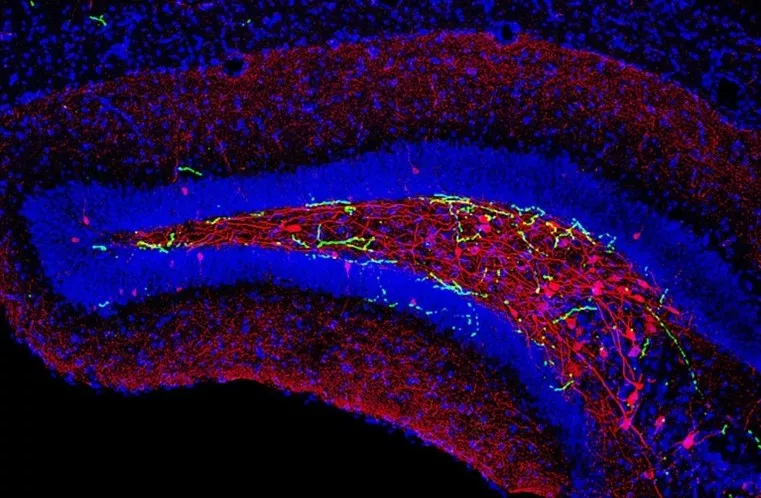At the ELKH Institute of Experimental Medicine (IEM), Krisztián Zichó and his colleagues, led by Gábor Nyiri, have discovered that a group of evolutionarily ancient brainstem neurons is required for the formation and retrieval of negative memories. The results have shown that our memory processes are not only controlled by the higher cerebral cortex but can also be effectively influenced by the little-studied brainstem, thereby providing a new direction for memory research. The paper describing the research has been published in the prestigious journal PLoS Biology.
It is well known that our memories are encoded by a precise pattern of activity of millions of neurons in the cortical hippocampus, a center for memory processing. The hippocampus links our negative experiences to the environment, in which we experienced them, but we can also consciously control the severity of our experiences and the memories we make of them. Our memories are not only formed by the association between the bad experience and the environment but are also influenced by a number of previous memories, assumptions, current mood, physiological state of the body and other circumstances. While we know that information about the environment (where and what happened) is transmitted from the cortex to the hippocampus, other factors (e.g. how dangerous what happened was) are thought to come from subcortical and brainstem areas via other nerve fibers. However, these processes and pathways are not yet understood. Gábor Nyiri's group has achieved groundbreaking results in this field of research, first published in Science in 2019 and now in PLoS Biology.
During the recording of a given memory, some hippocampal principal cells must be activated, and others inhibited to form the memory trace. The activity pattern of these cells depends on several factors. On the one hand, what sensory information they receive from the cortex, and on the other hand, what internal processes they are associated with. The present research has revealed that a group of cells in the brainstem called the nucleus incertus that sends nerve fibers to the hippocampus plays a fundamental role in the recall of negative experiences. The researchers used a variety of methods to investigate the role of these brainstem cells in memory processes in mice. They showed that the activation of these brainstem neurons alone did not cause a bad experience, but when the same brainstem neurons were activated during the exposure to a negative experience, their subsequent reactivation was able to recall the negative experience. The brain was therefore able to link the activity pattern of these cells to the negative experience. The fact that activation of these brainstem cells is necessary to remember a negative experience was demonstrated by the inhibition of these cells, which made remembering the negative experience very difficult. It was also found that these brainstem cells receive stimulation from higher cortical areas, which is thought to allow them to consciously influence the memory of negative experiences.

The activity of fibers innervating the hippocampus from the brainstem (green) regulates the activity of certain interneurons (red), which are able to recall fear memories by controlling the main memory-forming cells.
Krisztián Zichó and his colleagues, led by Gábor Nyiri, were the first to describe that the cerebral cortex can influence the function of the hippocampal memory center not only directly, but also indirectly, through an ancient brainstem cell population, and thus the formation and recall of our memories. This study may provide a new direction for memory research, as the results have shown that our memory processes are not only controlled by the higher cerebral cortex but can also be effectively influenced by the evolutionarily ancient, but so far little-studied brainstem. These brainstem mechanisms thus play a fundamental role in the formation and recall of negative memories.
Krisztián Zichó's research was supported by the New National Excellence Program of the Ministry of Innovation and Technology and the 250+ Excellence Scholarship of Semmelweis University, while Gábor Nyiri was supported by the National Research, Development and Innovation Office and the National Brain Research Program.
Publication:
Krisztián Zichó, Katalin Eszter Sós, Péter Papp, Albert Miklós Barth, Erik Misák, Áron Orosz, Márton István Mayer, Réka Zsófia Sebestény, Gábor Nyiri (2023). Fear memory recall involves hippocampal somatostatin interneurons. PLoS Biology. DOI: 10.1371/journal.pbio.3002154